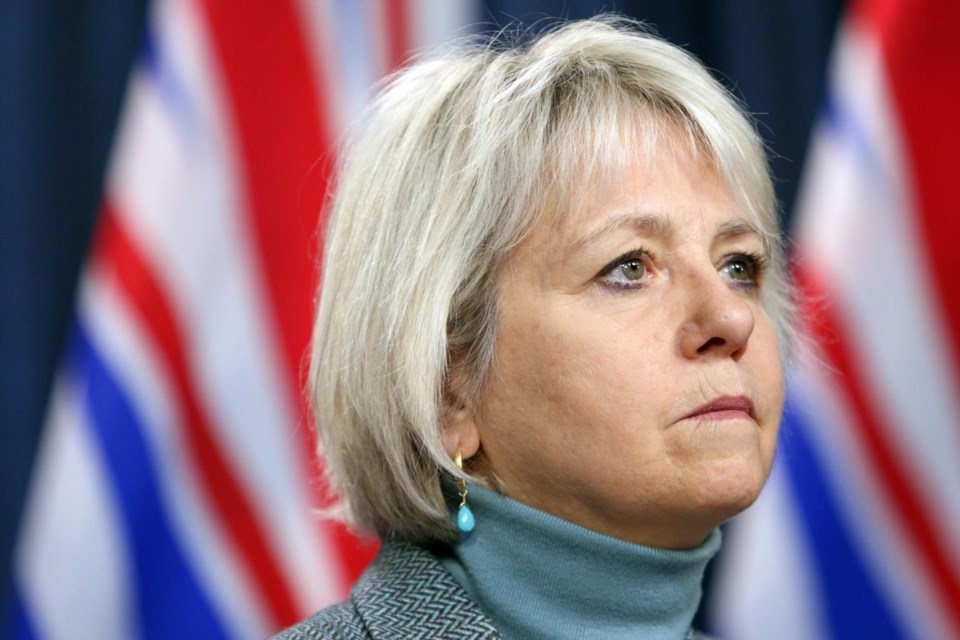VANCOUVER — COVID-19 hospitalizations in British Columbia are at their highest level and over 60 per cent of patients since December have tested positive for the virus after being admitted for other reasons, the provincial health officer says.
Dr. Bonnie Henry said Tuesday 706 people have been hospitalized in the last week, but the numbers appear to be peaking for all age groups.
A total of 1,035 people with COVID-19 were in hospital, while 139 of those were in intensive care.
Patients who contracted the dominant Omicron variant are going home in about half the time compared with those who are sickened with the Delta strain, Henry said.
She said 16 per cent of people hospitalized since Dec. 1 have needed critical care, a much smaller proportion than in previous waves of the pandemic.
People over 80 have been most at risk of being hospitalized for COVID-19 but the difference now is that health-care workers are off sick, leaving resources stretched, she said.
A high number of cases in the community are reflected in more cases in long-term care and assisted living facilities but the severity of illness is far less due to the high levels of vaccination and booster doses among residents and staff so that "one-size-fits-all" restrictions are no longer needed, Henry said.
That has led to a change in guidelines in B.C. regarding how outbreaks are declared in care homes, now allowing seniors to have both an essential and a designated visitor, one at a time, even when there are COVID-19 cases in the facility.
The updated guidelines are in line with what has been requested by seniors advocate Isobel Mackenzie, who has said visitors perform much of the essential care for their loved ones, and often help to feed them.
The decision on the declaration of an outbreak will be made by medical health officers assessing severe or asymptomatic illnesses.
All visitors must be vaccinated and wear masks, Henry said, adding the goal is to keep the doors open whenever possible without extreme measures because Omicron causes mild illness in many cases.
"We are also acutely aware of the impact of the extended social isolation that comes with the full closures of long-term care homes and we've been trying to find that balance of minimizing the risk of residents in long-term care, minimizing the transmission of the virus as well as having that all-important contact with our loved ones," Henry said.
The National Advisory Committee on Immunization recently recommended a booster shot for 12- to 17-year-old immunocompromised people six months after their second dose, and Henry said all B.C. residents in that age group will soon be invited to book their appointments.
While she recommended those who are clinically vulnerable get a booster dose, Henry said the province will be providing information on the risks and benefits to help others in that age group make a decision on whether to get the third shot.
Health Minister Adrian Dix said B.C. has received over 10 million rapid tests, which will be distributed for use in priority areas including the health-care system for symptomatic staff, long-term care and assisted living facilities, rural, remote and Indigenous communities, and schools.
The Health Ministry said 90.5 per cent of eligible adults have received two doses of a vaccine.
The province reported 1,236 new cases and nine more deaths on Tuesday, for a total of 2,625 fatalities from COVID-19.
— By Camille Bains in Vancouver
This report by The Canadian Press was first published Feb. 1, 2022.
Camille Bains, The Canadian Press



